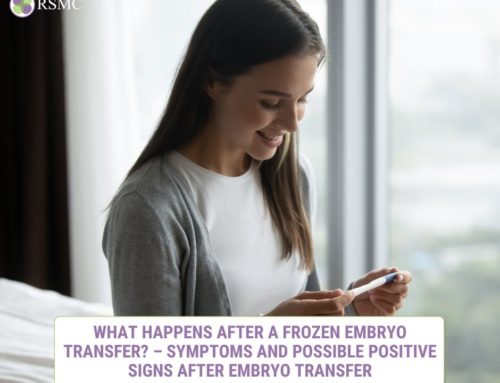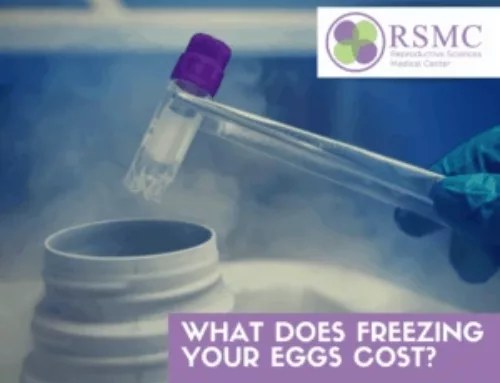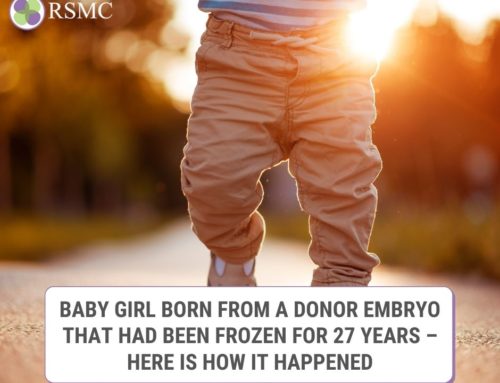Young Professionals Now Have the Ability to Control Their Reproductive Plans Through Cryopreservation.
Cryopreservation is a completely safe and less invasive egg freezing process called Oocyte Vitrification. It has enabled millennials to plan their families at an early stage without sacrificing their careers. Young professional women, especially in the United States, have grown up with the idea that they can have it all. This dream of family planning for millennials can now become a reality with the process of egg freezing.
Previously it was virtually impossible to have it all. A successful career, a fulfilling marriage, and adoring kids, but now you can. For many ambitious women, post-graduate years were spent acquiring wealth, pursuing success and finding the right guy. This would delay the start of their family until they reach their 30’s. While some accepted this, scientists and researchers did not. They found a new, more efficient way for women to have more reproductive possibilities. With Egg freezing so women can use it in their later age.
Female Fertility and the Numbers
Physically, we’ve been the same since ancient times. Our female ancestors commonly gave birth to their first child while in their teenage years! During those times young mothers would have more childbearing years. So they gave birth to more children with the hope that a few would survive childhood diseases and reach adulthood.
Current statistics show that the average age at which people have their first child has increased dramatically from 21.4 in 1970 to 27+ in 2018. The current birth rate is about 100 births per 1,000 women for women between 30 and 34 years old. It is approximately 52 births per 1,000 women for women between 35 and 39 years old. Current society has changed people’s thinking, and this has led them to wait longer when planning to start a family. This is now possible with the latest technology and research. Freezing young and healthy eggs has now enabled millennial women in planning their future families and direct their course accordingly.
It’s no secret that as women age, their chances of getting pregnant decrease. This also increases the risk of miscarriage. Statistical data from the Center for Disease Control reveals that fertility rates for healthy women in their twenties are the highest. But women aged 35 to 39 can have 14-30% lower chance of conceiving. Women between the ages of 40 and 41 can have as much as a 53% lower chance of conceiving. Similarly, in the case of miscarriages, rates are 5-10% for women between the age 20-29 and rise to 33% for women in their early forties. Also, it’s noteworthy that disorders like chromosomal abnormalities and Down’s Syndrome occur in about 1 out of 200 pregnancies for women in their twenties. This number changes to 1 out of every 38 pregnancies for women in their forties.
Understanding the Numbers
These are eye-opening numbers that give a clear picture of what happens to the eggs in your ovaries as we age. On average women have around 2 million eggs in their bodies when they are born. Women lose these eggs naturally throughout their lifetime, and by the time they reach puberty, they have approximately 400,000 eggs. After that women tend to lose 1000 eggs each month for the rest of their reproductive lives. Unfortunately, a woman’s body is unable to produce additional eggs.
To make things even worse, those few eggs that are left will dramatically decrease in health, quality, and genetic vitality over time as a woman ages. Recent studies indicate that between the ages of 20 and 29, women’s eggs are about 80% healthy. However, this figure plummets to 10%–20% when they reach the age of 40. This high percentage of abnormal eggs shows the real picture of why older women have more difficulty getting pregnant. It also gives an insight into why they often have miscarriages and have an increased chance of having babies with a chromosomal disorder.
Egg Freezing is Now a Shining Beacon for Female Millennials
Getting pregnant or having children when it’s physically optimal even though you might not be ready is not a solution. You might want to focus on your career, or you might not be financially prepared. You can’t just roll the dice and take your chances to be one of those fortunate women who retain the health and genetic viability of her eggs. This is exactly what happened for a long time, but thanks to cryopreservation, this is no longer necessary.
An alternative that should be considered by every young woman is the choice to freeze her eggs while she is still young and keep them for the future. The advances in medical science have made the process of egg freezing minimally invasive and affordable. This procedure ensures that women always have an option to start a family, even if that means later in their life. Oocyte Vitrification is considered to be the most revolutionary process of egg freezing. Once vitrified, eggs are likely to be viable for decades. Using cryopreservation, frozen eggs have low chances of chromosomal problems compared to eggs at the age of 40. Plus, these frozen eggs would then be available, whenever she decides the time is right for her at a later age.
The Process
The egg freezing process requires a woman to go through the initial steps of an IVF cycle. she will have to self-administer daily medications to stimulate the growth of follicles and retrieve as many eggs as possible for cryopreservation. It is important to note that not all the frozen eggs will survive the thawing process, but most will. There are several companies that include Egg freezing in their health insurance plans. Cryopreservation or egg freezing is a great reproductive option for young women who are sure they want to have children in the future at a later age.
Reproductive Sciences Medical Center has already helped and cryopreserved eggs for many women. We strongly believe that this alternative should be considered by any young or millennial woman who is delaying her family planning. This ensures that her eggs will be in the best condition in order to preserve them for the future. If you have questions about egg freezing, you can visit us at www.fertile.com or call (858) 436-7186 to schedule a consultation.























